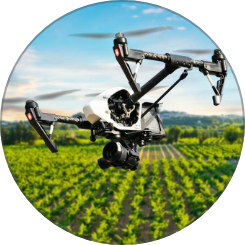Blog Information
- Posted By : BARRY DANNIE
- Posted On : Nov 26, 2021
- Views : 337
- Category : General
- Description : Hyperautomation is technologies that are utilized to scalen institution. It further automates already automated procedures, taking industry undertakings beyond personal input. Comprehending papers using OCR (Optical Character Recognition) Understanding emails utilizing NLP (Natural Language Arts Processing) Forecast stocks and automated, restocking. Improving automation flows using AI/ML (Artificial Intelligence/Machine Learning)
Overview
Hyperautomation is technologies that are utilized to scalen institution. It further automates already automated procedures, taking industry undertakings beyond personal input. Comprehending papers using OCR (Optical Character Recognition) Understanding emails utilizing NLP (Natural Language Arts Processing) Forecast stocks and automated, restocking. Improving automation flows using AI/ML (Artificial Intelligence/Machine Learning)
Hyperautomation indicates a study of a strategy for mechanization. A hyper-automation exercise involves specifying what labor to automated, selecting the reasonable mechanization tools, riding agility throughout the reuse of the computerized procedures, and broadening their capacities using various seasonings of AI and device knowledge.
Cloud migrationservicerefers to how industries are walking to the cloud and the commodities used to get there. Cloud providers in themselves and (awfully as Azure, AWS, and Google) all offer tools and assistance to help emigrate your workloads and sauces.
Service Migration. Employment Migration is an act of walking from one vendor’s commodity to another. A typical instance may be walking from an Amazon SQL Server Relational Database Service to Azure SQL Service. Both cloud computing services offer the capacity to manage a SQL server database.
An IoT Solution is a seamlessly integrated packet of technologies, encompassing many detectors, that corporations can purchase to solve a problem and/or create new administrative value.
The Internet of Things (IoT) interprets the network of biological objects—“things”—that are entrenched with sensors, software, and other technologies to relate and exchange data with other equipment and systems over the internet. An application programming languages interface (API) is a carrier that filters requests and assures the seamless functioning of investment systems. API facilitates interaction between data, dressings, and devices. It delivers data and facilitates connectivity between equipment and programs.
API integration is the relationship between two or more dressings via their APIs (application programming interfaces) that enable systems to trade data quotations. API integrations power filters throughout many sectors and layers of an organization to keep data in synchronization, enhance productivity, and hustle earnings.
DevOps is the mixture of artistic ideologies, exercises, and equipment that improves an organization’s capacity to transmit dressings and services at high velocity: evolving and improving commodities at a faster pace than institutions using conventional software growth and infrastructures supervision processes.
In simple terms, DevOps is about eliminating the barriers between traditionally siloed committees, growth, and undertakings. Below a DevOps model, growth and operations committees work jointly across the whole software applications, life cycle, from growth and test through deployment to undertakings.
Blockchain development architects build applications based on blockchain architecture and protocol. Blockchain software architects create Dapps or decentralized dressings. They are accountable for the front-end as well as back-end growth of Dapps. They also oversee the stack that runs the Dapps.
blockchain can give a non-hackable certificate of interchanges between people and computers, its uses are as endless as computers themselves. Nonetheless, blockchains nowadays play a key role in several cryptocurrency-related functions, very as riding cryptocurrency exchanges, voting on cryptocurrency administration policies, and assigning those who will be accountable for verifying agreements made on a currency’s blockchain.

